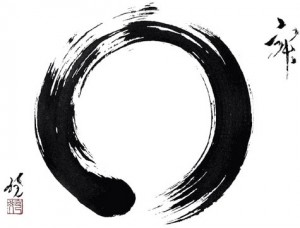 An excerpt from the Mindfulness workshop given by Jetsunma Ahkon Lhamo in 1999
An excerpt from the Mindfulness workshop given by Jetsunma Ahkon Lhamo in 1999
Lamas and bodhisattvas have taught time and time again that one’s practice must be part of one’s life. They have taught that it has to be an ongoing thing, and that you can’t separate it from whatever else it is that you do. The opportunity to practice exists in our lives, and so therefore, to only utilize sit-down time and completely separate that from the rest of our lives without any effort toward recognition or mindfulness is really pretty useless. It’s like trying to drive down the street with no air in your tires. You’re not going to get that far. This mindfulness, like changing any habitual tendency, can be a little bit painful or tight at first – that happens – but you know that, and you’ve broken through things like that before when they were important to you. For those of you that have quit smoking, when you first quit smoking, that was a raw and painful thing, but you pushed through it because you knew that established the new habit pattern was going to be the way to go. That was the only way to get to that goal.
Why don’t we think the same way about our practice? Why do we think that we just have to wait for the glory? If you decide you’re going to exercise, you have a goal: you don’t want to be a blob anymore. That’s your goal, and you’re fervent about it. When you first exercise, you’re going to hurt. It’s going to ache. If you’re really committed and you’re really not into being a blob, you’re going to take two Tylenol, and you’re going to continue. You’re going to push through it. Why can’t we push through our own habitual tendencies? Why can’t we push through into some kind of ritual of recognition? If we can ritualize working out, if we can ritualize stopping smoking, if we can ritualize crossing the street safely, if we can ritualize occupational training, why can’t we ritualize the state of recognition so that we make it part and practice of our walking, waking lives? We trained to become whatever we are now. Are you a doctor? Are you a nurse? Are you trained for that? Wasn’t it hard when you first started taking in all that information? Sure it was. Are you a professional in any way? You trained for that. It was hard when you made those new habits, but you saw a goal and you had to get there because everything in you told you you’re supposed to be successful at that. Why won’t we accept this responsibility in our practice? That’s what it takes. It takes really accepting that responsibility in our practice.
If you want to play guitar, your fingers are going to hurt for a while. You’ve got to build calluses, but ordinary human beings, perfectly ordinary human beings, can do that because they observe the equation. They can see that if they want to get there, they have to go through this uncomfortable zone of practice. Why can’t we do that in our spiritual practice? Why is it up to our teacher to push us through to realization? Why do we hang around like limp practitioners and say, “Well, after I do this practice, what practice should I do after that?” without really ever trying in the least little way to have any recognition of the nature of phenomena, of the nature of reality? We’re perfectly able to do this. We do this in other areas of our lives. Why is this so hard?
© Jetsunma Ahkön Lhamo










